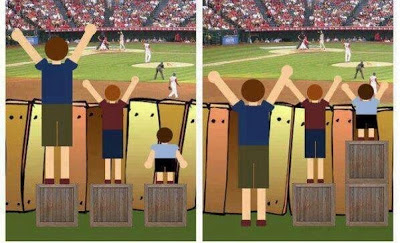Year: 2018
-
Acid Attack: The Ageless Horror
By Sunidhi Singh, Army Institute of Law, Mohali. “Violence is a crime against humanity, for it destroys the very fabric of society.”-Pope John Paul II Acid attacks have become a frequent phenomenon in the present day world. ‘Woman staves off molestation attempt, attacked with acid’, ‘Unidentified men threw acid on a 35 year old woman’,…
-

Goods and Services Tax: A New Era
By Nitesh Jindal, Dr Ram Manohar Lohia National Law University, Lucknow. Goods and Services Tax (GST) is an indirect tax which will bring transparency and effective governance in the country. It is a destination-based tax levied at multiple stages, starting with the manufacturing stage, to the sale of goods stage, whose overall burden has to…
-
Trademark: A Sign of Recognition?
By Vignesh Ganesh, G.J. Advani Law College, Mumbai. “What is in a name?” I am sure you would have heard these immortal lines by the famous playwright, Shakespeare. This line sounds cool in the literary sense, but if Shakespeare knew of the exclusive value this line held in terms of intellectual property rights, he would definitely…
-
Regional Rural Banks in India: Explained
By Tanya Patwal, Amity Law School, Delhi. In India, especially the rural areas, majority of the population had no basic banking facility and had no financial services provided to them. Despite 14 private banks being nationalised in 1969, commercial-turned-national banks couldn’t cater to the rural credit needs. Thus, under an ordinance passed in 1975 on the…
-
Decrypting Cryptocurrency
By Anmol Kaur Bawa, Symbiosis Law College, Pune. Virtual Currency: the How and What The modernistic approach to virtual currency often called “crypto”currency is the evolution of digital, intangible and computational currency which individuals can use for online purchases and in a plethora of digital transactions. The flabbergasting concept as such has thrived, on the notion of…
-

Contradiction of Reservations under the Indian Constitution
By Jhalak Nandwani, Gujarat National Law University, Gandhinagar. Indian Constitution gives us the right of equality, and the freedom to exercise this right. However, in today’s time, one of the major hindrances to this equality is the Reservation System. This reservation system was worked on, at the time of the drafting of our Constitution, and…
-

Case Note: Hawkins Cookers Limited v Murugan Enterprises
By Teesta Lahiri, National Law University, Odisha. I. A Basic Introduction to Trademarks and Passing Off For us, beginners at IP, before we proceed further to deal with a landmark judgement in the Trademarks Jurisprudence in India, it is essential that we become slightly better acquainted with two terms, ‘Trademarks’, the chief bone of contention and ‘Passing…
-
Triple Talaq Bill: Inadequate yet Momentous?
By Sunidhi Singh, Army Institute of Law, Mohali. “Justice consists not in being neutral between right and wrong but in finding out the right and upholding it, wherever found, against the wrong.”-Theodore Roosevelt In the case of Shayara Bano v. Union of India and others, it was held by the honorable Supreme Court of India that…
